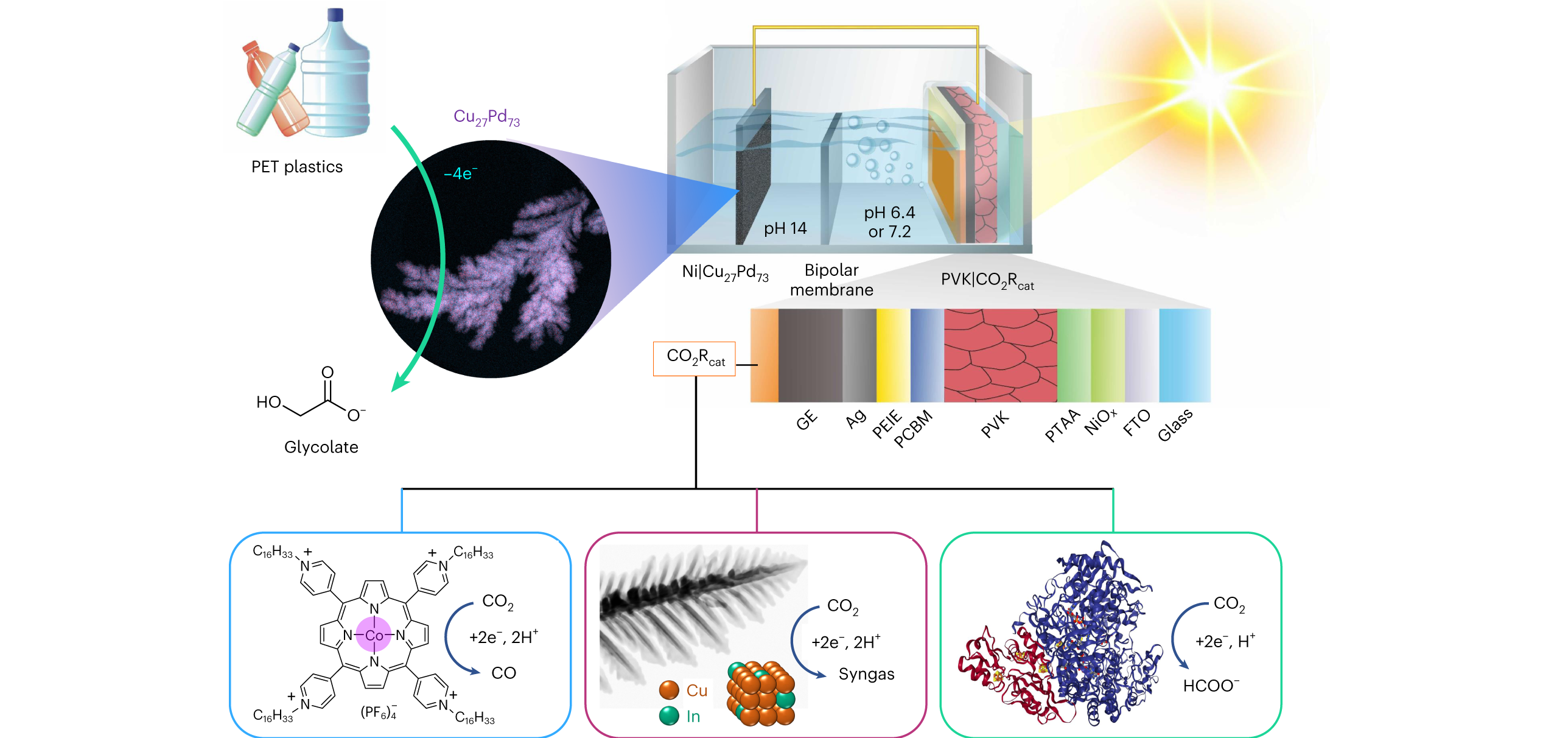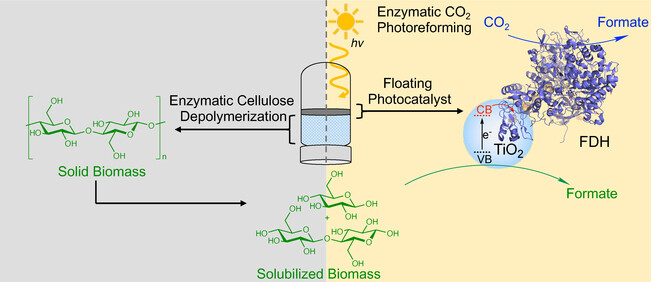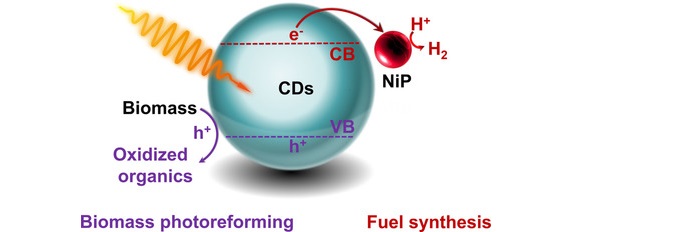-
Solar reforming
Why make oxygen when you could make useful chemicals
instead?
Solar-driven fuel synthesis is a sustainable and potentially
economical technology for producing energy carriers such as
“green” H2 fuel through water splitting. Photocatalytic
water splitting processes are usually limited by the water
oxidation half-reaction, which is kinetically and energetically
demanding as well as requires often expensive catalysts and
unsustainable sacrificial reagents. Our research aims to overcome
these challenges by using alternative oxidation half-reactions to
drive the breakdown of waste polymers or chemicals into valuable
organic products. We utilise a variety of novel photocatalysts –
including quantum dots and carbon-based nanomaterials – to (1)
develop light-driven, high-yield organic transformations and (2)
“photoreform” plastic- or biomass-derived waste into organics and
fuel. Our aim is to enhance the sustainability and economic value
of solar fuels by developing processes that simultaneously produce
fuels and drive value-added organic transformations.
Selected recent publications
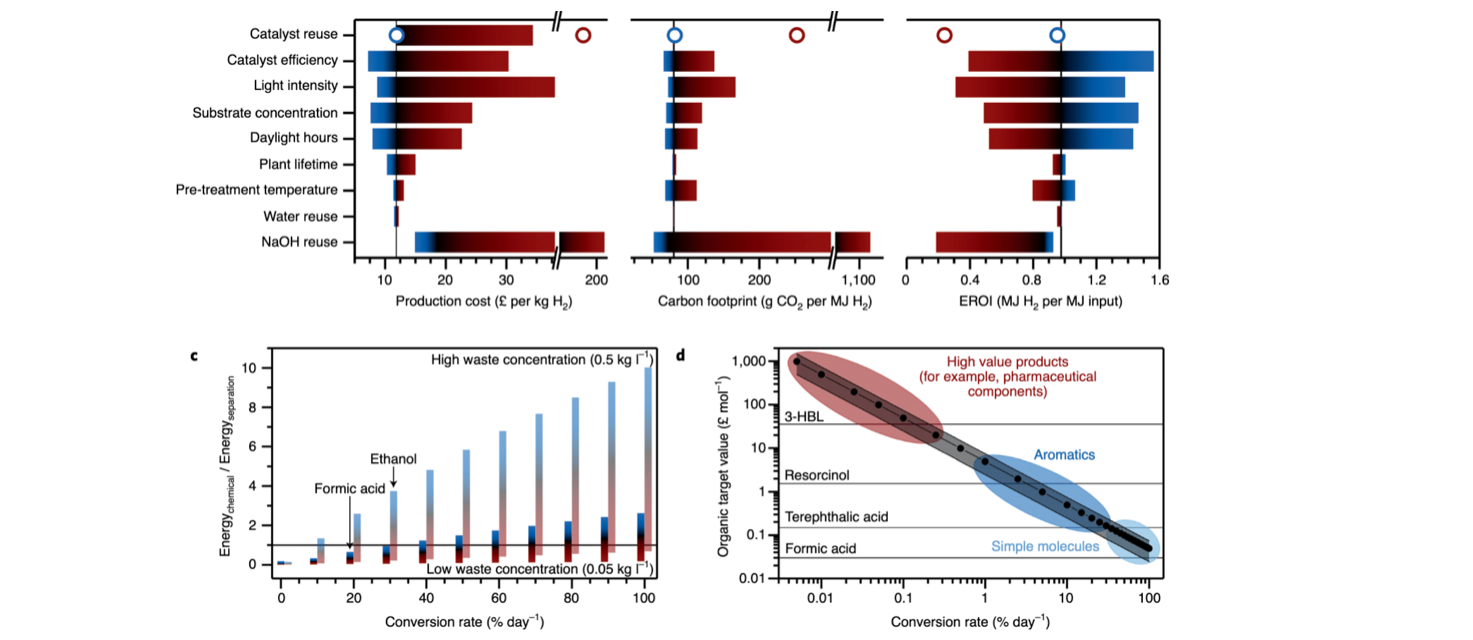
Solar-driven reforming of solid waste for a sustainable future.
Uekert, T.; Pichler, C. M.; Reisner, E. Nat. Sustain.,
2021, 4, 383-391.
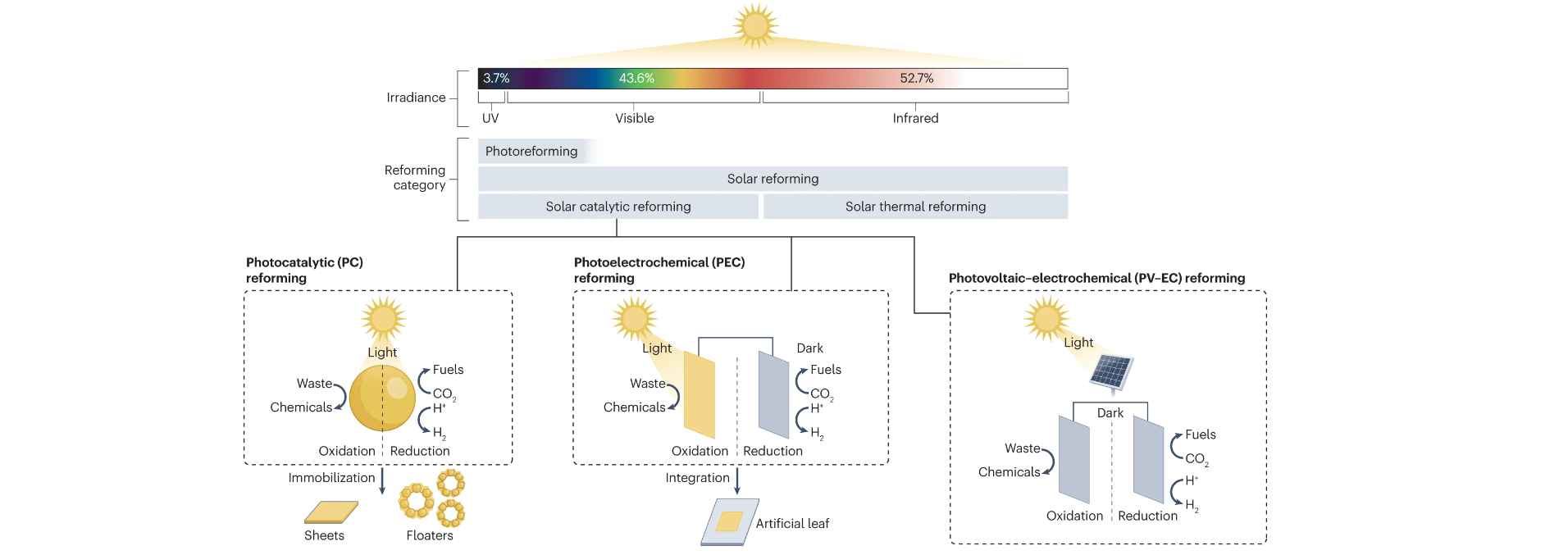
Solar reforming as an emerging technology for circular chemical industries.
Bhattacharjee, S.; Linley, S.; Reisner, E. Nat. Rev. Chem., 2024, 8, 87-105.

